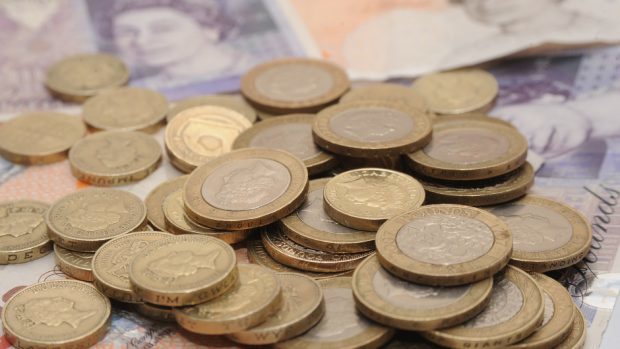Britain’s shock vote to leave the European Union roiled global markets for a second day yesterday, hammering banks and dragging the British pound to a 31-year low.
A ratings agency also moved last night to strip the UK of prized triple A credit rating, adding to fears that the cost of servicing its £1.7trillion debt pile will rise.
Boris Johnson, leader of the successful leave campaign and a favourite as the UK’s next prime minister, yesterday morning claimed to reporters outside his door that “people’s pensions are safe, the pound is stable, the markets are stable”.
But more than £40 billion was wiped off the value of Britain’s biggest companies and ratings agency Standard & Poor’s stripped the UK of its top credit grade in the wake of its vote to leave the EU.
Meanwhile, investors were betting Britain’s vote to leave the EU will trigger a Bank of England (BoE) rate cut, as sterling plunged to $1.3151, before rallying back to a 3.4% fall to $1.321. Yields on 10-year government bonds also slid below 1% for the first time.
“The UK economy is headed for recession,” analysts at Llewelyn Consulting said.
“Potential output has been cut at a stroke (and) the country’s large twin deficits leave it exposed to capital flight. Only the Bank of England remains fully functional. It has the tools to ensure financial solvency, but not economic activity,” they added.
Chancellor George Osborne said the economy would have to face up to “an adjustment” as it dealt with the fallout of Brexit. But investors again shunned the pound and sought the safety of government bonds.
UK money and bond markets moved to price in lower interest rates, with swaps rates now almost fully implying a 0.25 percentage-point cut from the BoE by the end of the year.
“You’d have expected there to be some psychological barrier to gilts breaking through 1%, but not today,” said Luke Hickmore, senior investment manager at Aberdeen Asset Management.
“Gilt yields just kept dropping. It’s no wonder. There’s no political leadership in the UK right when markets need the reassurance of direction,” he said.
The pound’s fall on Friday after the result of the poll was confirmed was the largest in modern history, reaching more than 10% against the dollar at one stage, and was also the largest decline since at least the 1970s on a trade-weighted basis.
RBC Capital Markets now expect the BoE to cut rates by 25 basis points next month to 0.25%, and again in August down to 0.1%along with an additional £50billion of quantitative easing bond-buying stimulus. Several banks, including Goldman Sachs and Bank of America Merrill Lynch, cut their sterling forecasts too.
